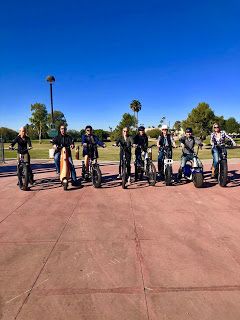Do I Need a License to Ride an Electric Bike?

17
Apr
Electric bikes have gained popularity as a convenient and eco-friendly mode of transportation. If you're considering riding an electric bike, it's essential to understand the licensing requirements associated with them. In this blog post, we'll delve into the federal and state regulations governing electric bike usage, providing you with valuable insights to ensure a safe and legal riding experience.
Federal Regulations
Under federal law in the United States, electric bikes are treated similarly to regular bicycles, subject to specific criteria. The Electric Bicycle Act of 2002 defines an electric bike as a bicycle that features a motor with a maximum power of 750 watts (1 horsepower) and is limited to a top speed of 20 mph when propelled by the motor. Consequently, in most cases, a license is not required to operate an electric bike that meets these federal regulations.
State Regulations
While federal regulations provide a general framework, each state has the authority to establish its own regulations regarding electric bikes. Consequently, licensing requirements and other regulations may vary depending on your location. It's crucial to be familiar with the specific rules in your state to ensure compliance.
Arizona Regulations
Let's first examine the regulations for electric bikes in Arizona:
Arizona follows the federal definition of electric bikes, treating them as bicycles if they meet the criteria mentioned earlier: a motor with a maximum power of 750 watts and a top speed of 20 mph when propelled by the motor. Therefore, in Arizona, you do not need a license to ride an electric bike that meets these federal regulations.
It's important to note that Arizona does not have specific tiered classifications like California. Instead, they adhere to the federal standards, focusing on motor power and speed limitations.
California Regulations
Now, let's explore the regulations for electric bikes in California:
Tier 1
In California, pedal-assist electric bikes fall into this category. They feature a maximum speed of 20 mph and a power output of less than 750 watts. These bikes provide assistance based on the rider's pedaling effort.
Tier 2
California's Tier 2 consists of throttle on-demand electric bikes. Similar to Tier 1, they have a maximum speed of 20 mph and a power output of less than 750 watts. Throttle-based electric bikes allow riders to engage the motor without pedaling.
Tier 3
Known as "speed pedelec" bikes, California's Tier 3 electric bikes can reach a maximum speed of 28 mph, with a power output of less than 750 watts. They provide pedal assistance and are subject to additional regulations due to their higher speed potential.
Conclusion
In general, federal regulations in the United States consider electric bikes as bicycles if they meet specific criteria, such as a maximum speed of 20 mph and a motor power output of less than 750 watts. Therefore, a license is typically not required to ride an electric bike that adheres to these federal regulations. However, it's crucial to be aware of and comply with the regulations set by your state, as licensing requirements and other regulations may vary. By understanding and adhering to the applicable regulations, you can enjoy the benefits of electric bike riding while ensuring safety and legal compliance, whether you're in Arizona or California.
